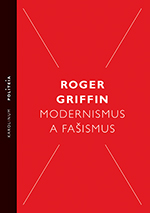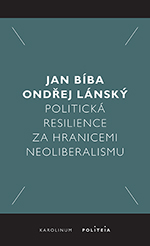Jiný konec dějin
Eseje o velké transformaci po roce 1989
[The Other End of History. Essays on Large Transformation after 1989]
subjects:
political science and international relations
series:
Politeia
paperback, 244 pp., 1. edition
translation: Schwarzová, Zuzana
published: november 2022
ISBN: 978-80-246-5402-7
recommended price: 300 czk
summary
In 1989, it seemed that in the spirit of Fukuyama’s quote, the end of history had arrived and that the West had emerged victorious. It may seem different from today’s perspective. In his essays, the multi-award winning historian Philipp Ther searches for the origins of this perception and bases it on Karl Polanyi’s groundbreaking work The Great Transformation. Thematically he covers the development of the USA from the time of Bill Clinton through the end of Donald Trump’s presidency, the German method of transformation after the country’s reunification as well as for example the reason why Russia and Turkey have grown apart from Europe to such an extent. This revised edition also covers Covid-19 and the Russian war in Ukraine.
reviews
In a forthcoming book, How the West Lost the Peace (Polity), translated by Jessica Spengler, Ther writes on the concept of "co-transformation." Change and reform moved in both directions. Borders softened. We sent Russia Snickers bars and personal computers; they sent us hockey players and Tetris. But there were less positive outcomes, too. It was one thing to impose "structural adjustment" on the states of the former Eastern Bloc, quite another when their desperate unemployed showed up at our borders. Ther uses the example of Poland—a large country that underwent a jarring and painful reform period yet emerged successfully, at least from an economic perspective, on the other side. But in the process many people were put out of work; rural and formerly industrialized sections of the country did not keep up with the big cities. This generated a political reaction that was eventually expressed in support for the right-wing nationalist Law and Justice Party, which in 2020 all but banned abortions in Poland. At the same time, a greatmany Poles emigrated to the West, including to the United Kingdom, where their presence engendered a xenophobic reaction that was one of the proximate causes,in 2016, of Brexit.
Keith Gessen (The New Yorker, June 12, 2023)
newest releases in the series

Modernismus a fašismus
